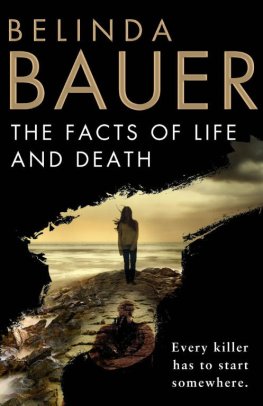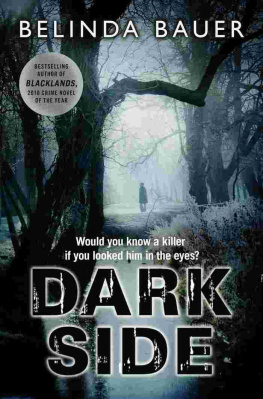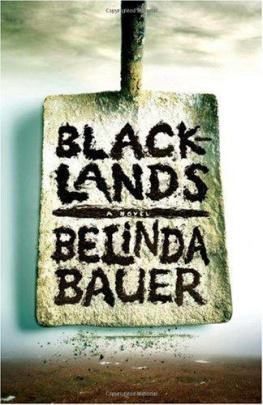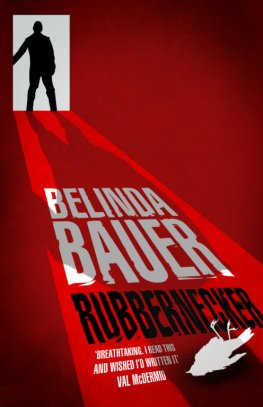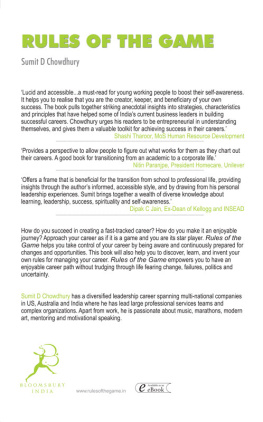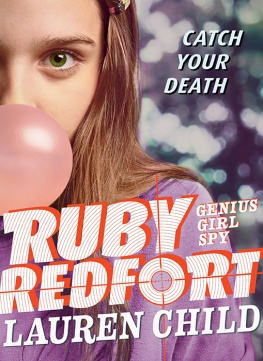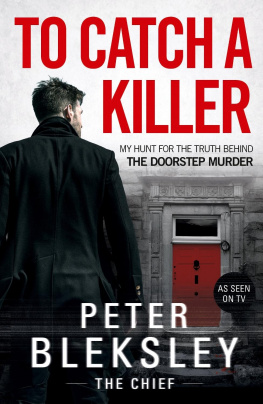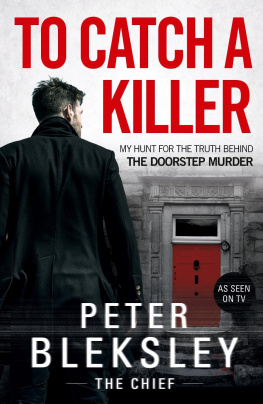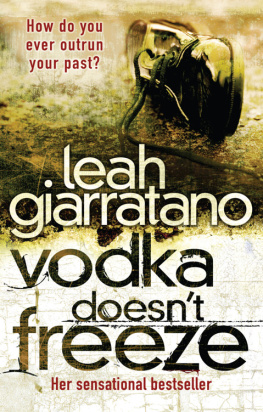Belinda Bauer
THE FACTS OF LIFE AND DEATH
To all my sisters
and my secret brother


IT HADNT STOPPED raining all summer, and the narrow stream that divided Limeburn ran deeper than Ruby Trick had seen it in all of the ten years shed been alive.
The ditch that marked the crease in the gorge usually held a foot of tumbling, tuneful water. Enough to wet your knees but not your knickers.
But this summer was different. This summer, the sun had only shone apologetically through short gaps in the dirty Devonshire clouds, and the stream was fast and deep and dark. And although Adam Braund could still jump from one mossy bank to the other if he had a run up, the children all gathered to watch him now because if he fell in, it was just possible that he might drown.
The lane that rose a steep, curling mile through the forest to the main road was always mirrored with wet, while the cobbles between the cottages closest to the slipway had never lost their green winter sheen. The trees that threatened to push Limeburns twenty-odd houses into the greedy sea below never dried out. Leaves dripped even when the sky did not; the stream spewed from the cliff face like a fire hose, and the steep dirt footpaths that escaped Limeburn through the woods were nothing but lethal slides.
Not that that stopped anyone, of course.
There were only five children in the village so they were forced to be playmates, just as they were forced to live in this dank place that smelled of kelp.
Chris Braund was the eldest at thirteen. His brother Adam was a year younger, but a year taller. The Braunds were descended from Armada sailors washed ashore, and they all looked like gypsies. Then there was Ruby with her shock of red hair. After her came seven-year-old Maggie Beer and her two-year-old sister, Em, who slowed them all down. Both were stick thin and see-through pale. Maggie had to linger for Em, the boys went on ahead, while Ruby was always left somewhere in the middle.
To the west they were allowed to climb the path through the forest to the stone stile. In a small clearing there, a bench on the cliff looked out through a leafy frame and over the black pebble beach to the Gore. The Gore was a slim, flat spit that jutted a hundred yards into the waves before turning abruptly and stopping. It was said that the Devil had tried to build a bridge across to Lundy Island, but had been thwarted when his shovel broke.
Ruby didnt like the Gore or the story.
They made her wonder where the Devil was now.
Hanging from an ancient oak beside the bench was a loop of fraying rope where they could swing if they wanted to burn their palms and fall in the mud. Still, they did swing more often than not, because that was all there was to do.
Sometimes Chris and Adam climbed over the stile and went on up the pathway. All the way to Clovelly! Chris had boasted on several occasions, but when Ruby had asked him to bring her back a toy donkey from the visitor centre, he said theyd run out.
Ruby never went past the stile. That far and no further, her mother had warned her. That was partly why. The other part was that, even on a sunny day, the woods beyond the stile were too dark and too quiet a tunnel of green with the threat of the unseen drop on one side, and tangled undergrowth rising on the other. The pixies in the woods would lead you in circles even right off the cliff if they could. Youd have to turn your coat inside out to keep them away.
At the foot of the Clovelly path was a small stone beehive-shaped hut. They didnt know what the hut was supposed to be for, but they called it the Bear Den because even in the dry it smelled like bears. The children took turns to squeeze through the tiny door and sit in the dark with their knees tucked under their chins for as long as they could stand it.
Adam held the record, which was ages.
To the east, the Peppercombe path was even steeper a switchback of mud and wooden planking in a makeshift staircase between clinging brambles.
Halfway up was the haunted house where they werent allowed to go. They spent much of their time there, picking among the cinders in the fireplaces and knocking glass from the empty windows at low tide, to hear it tinkle on the wet pebbles a hundred feet below. Each year the worm-chewed floor jutted out further and further over the disintegrating drop. There was one place where Ruby could lie with her eye to a knothole in the floor, where there was nothing between her and the dark grey sea.
It was like flying.
Or falling.
Ruby Trick lived in a tiny two-bedroomed cottage called The Retreat. It was owned by a family in London who had bought it and named it and then found it was too distant, too dreary, too damp to retreat to even just once a summer and had rented it out until they could sell at a profit.
That was never going to happen. The Retreat would cost less to demolish and rebuild than it would to repair. Rubys father, John Trick, hammered bits of scrap wood into draughty window frames, and slapped filler at the widening cracks in the walls, but each year The Retreat fought a losing battle against nature.
The forest didnt want them there that was plain to Ruby. While Clovelly kept it at bay with size and industry and, ultimately, brute tourism Limeburn was just in its way. The stream and the road and the thin line of houses were never going to be enough to keep the trees on this side of the coombe joining the trees on that side. It was only a matter of time. The advance party was already established. Ferns sprouted from stone walls like little green starfish, while rhododendrons and hydrangeas crowded back doors and shrouded rear windows. And, even as the trees surrendered their branches to loppers and chainsaws, so they tunnelled sly roots under enemy lines, breaking through pipes, loosening foundations and shifting walls out of true. In Rock Cottage the living-room floor had bulged and finally splintered to reveal a root of oak as thick as a mans leg. Theyd all been in to look, and to help old Mrs Vanstone rearrange the furniture around it.
John Trick always said there were some things you just couldnt stop. Already the houses further up the hill had been swallowed by the forest, their stone hearths now washed with rain, and home only to spiders and bloated toads, while the houses that were left had nowhere to go but the sea, which gouged relentlessly at the cliff beneath them.
The long, curved slipway tempted the water up into the village, and sometimes it came. During spring tides and storms, sandbags were packed tight behind wooden slides in the doorways, and people took their heirlooms and TVs up to bed with them, just in case.
By day, it was easy to forget that the trees and the ocean were lying in wait. By day the children played in the woods and stepped gingerly across the giant pebbles on the beach to paddle in the rockpools.
But by night Ruby could feel the tides tugging at her belly, while the forest tested The Retreat, squealing against the glass and tapping on the tiles.
And she wondered what it would be like when the outside finally broke in.
JOHN TRICK DROVE them up to the main road to get the bus Ruby to Bideford, her mother only as far as the hotel, from where she brought home leftovers so good that Ruby would sometimes get up in the middle of the night to finish them off.
Their car, once white, was now frilled with rust. The car seemed to hate them as much as the forest did, and sometimes wouldnt start. When it did, it coughed and jerked all the way up the winding mile.

